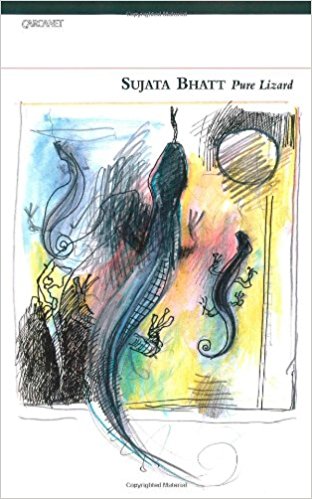Sujata Bhatt’s meditative and reflective verse has established her among the much feted poets of promise writing in English today. Her poetry is marked by a poignant search for home, language and love. She conducts this search with deep sympathy and empathy through the use of memory and history in her work. Her poetic voice resonates ¬across continents and cultures, inter-weaves ¬and explores artistic forms and connects diverse places and time periods. She keen interest in the exploration of women’s experiences and the silences surroun¬ding them. In Pure Lizards her recent volume of poetry one sees a palpable shift in her poetic concerns. She makes a significant departure from her earlier work as here she seems to be preoccupied with the theme of evil—especially its perception and representation by women. The thematic thrust becomes evident right from the very first poem of this anthology and continues through other poems with a gradual accretion of the evil-women interrelationship.
Those three monkeys:
see no evil hear no evil speak no evil- They always knew they were women- Women, not monkeys, And one day the camera revealed their souls. (‘A Hidden Truth’ p. 1)
If women have been globally denied the seeing, hearing, speaking and doing of evil, they have, nevertheless explored its dimen¬sions and manifestations creatively. The epigraph of this anthology, taken from Eleanor Wilner, reinforces and reorients the reader’s attention to the neglect of Cassandra’s legacy to women’s need to share distressing visions and insights, regardless, of how they will be received.

